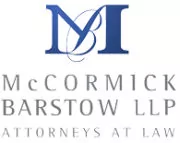McGranahan v. The Insurance Corporation of New York
___F. Supp.___ (E.D. Cal. 2008)
BACKGROUND FACTS
The Insurance Corporation of New York ("INSCORP") issued a Commercial General Liability policy to Jeff Stewart Drywall ("JSD"). The policy excluded property damage to "that particular part of the real property" on which the insured worked and "that particular part of the property that must be restored, repaired or replaced" because the insured incorrectly performed work on it. On or about May 16, 2002, JSD entered into a contract for the installation of drywall at a residential subdivision located in Ceres, California. The drywall was installed between December 2002 and January 2003, during which time the weather was frequently cold, damp and foggy, with occasional rain. According to JSD, the drywall was delivered to each home site where it was stacked and covered with a plastic tarp until installation. JSD maintained that before it could install the drywall in several of the homes, some of the sheets were either culled or replaced because they were wet. After the drywall was installed, JSD's work was inspected and approved. However, mold was subsequently discovered on some of the drywall which JSD then treated with bleach in an attempt to remediate the damage. The contractor subsequently initiated binding arbitration proceedings against JSD alleging breach of contract. INSCORP denied coverage on grounds that the installation of the moldy drywall was not an accident because JSD was aware of the mold problem prior to installation.
THE COURT'S RULING
INSCORP contended that there was no potential coverage under the
CGL policy because JSD intentionally installed wet or moldy
drywall. Although, the complaint filed in connection with the
contractor's arbitration action alleged that JSD "utilized
mold-contaminated sheet rock," it did not allege whether such
utilization was intentional or negligent. The factual issues as to
whether JSD knew that the drywall was wet or moldy when installed
merely placed in dispute whether JSD's actions would eventually
be determined not to constitute an occurrence or to fall within one
or more of the exclusions contained in the policy. Thus, following
well established California law, the court determined that so long
as the possibility of a judgment based on non-intentional conduct
existed, there was a potential for coverage giving rise to a duty
to defend.
INSCORP also contended that there was no potential for coverage
based on the "your work" exclusion within the policy.
However, the evidence indicated that some of the damage alleged was
to property other than the drywall. As such, the exclusion did not
negate INSCORP's defense obligations under the policy.
Additionally, INSCORP argued that the exclusion for work not
"completed" also applied. However, the court rejected
that argument because JSD's work was inspected and approved
after completion.
With respect to the duty to indemnify, as noted, the court found
there existed triable issues of fact as to whether JSD had
intentionally installed wet or moldy drywall. Thus, the issue of
indemnity could not be decided on summary judgment.
Finally, the court concluded that the bad faith claim made by JSD
against INSCORP was not barred by the statute of limitations. The
court determined that the statute was tolled until final judgment
and, as such, was not a proper ground for summary judgment.
THE EFFECT OF THE COURT'S RULING
The relevant inquiry for purposes of determining if third-party
property damage was caused by an "occurrence" within the
meaning of a Commercial General Liability policy is whether the
insured intended to perform the act directly responsible for the
claimed injury.
The content of this article is intended to provide a general guide to the subject matter. Specialist advice should be sought about your specific circumstances.


